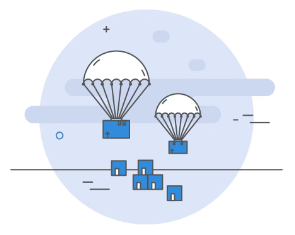With the humanitarian crisis relief grant fund
UN Crisis Relief connects people who care to people in crisis, providing support where it matters most.
GIVE TO CRISES ACROSS THE WORLD
Introduction
The Humanitarian crisis relief (the Foundation) is committed to supporting all organizations interested in applying for funding with resources to strengthen grant applications. We have put together this guidance to help you think about not only the details of your project but also the impact of your project. You will see there is an emphasis on monitoring, evaluation, and learning (MEL) in these trainings as well as a wide array of other topics.
While it’s likely that you – as an Humanitarian crisis relief Grant Applicant – have heard the words monitoring, evaluation, and learning (MEL) before, this guidance works to provide all applicants with a standard level of information about what MEL vocabulary and techniques mean in principle and practice, according to the Foundation.
The following monitoring, evaluation, and learning (MEL) modules are intended to support your grant application by providing guidance and best practices to strengthen your proposal and prepare you for setting indicators, tracking progress, gathering feedback, capturing successes, and reporting on your outcomes in projects funded by the Foundation.
Why is Monitoring, Evaluation, and Learning (MEL) important?
To Measure Impact
Impact, as the Foundation defines it, is the positive influence of activities on the community the project is serving. Remember the overarching goal of the Foundation is to positively impact humanity through an open, globally connected, secure, and trustworthy Internet for all.
When designing a grant application, it is therefore important to be clear on what changes you envision, and how you intend to measure whether your project is on the right track to achieve these changes. And remember: Impact can only be measured over time.
To Further The Foundation’s Vision
- The Humanitarian crisis relief was established to support the positive difference the Internet can make to people everywhere. Guided by our vision of an Internet for Everyone, the Foundation champions ideas and enables communities to unlock the Internet’s potential to tackle the world’s evolving challenges. Focusing in five program areas, the Foundation awards grants to Internet Society Chapters as well as non-profit organizations and individuals dedicated to providing meaningful access to an open, globally-connected, secure and trustworthy Internet for everyone.
To Contribute To The Foundation’s Programme Areas
The Foundation is deeply committed to our grantees, we provide funding to design Internet-powered impactful and sustainable solutions to challenges faced by communities worldwide. Grants are available to non-profit charitable organizations and individuals in five programme areas:
- Local and regional projects developed and implemented by the Internet Society’s Chapters and Special Interest Groups – Beyond the Net.
- Initiatives that Strengthen Communities / Improve Lives and Livelihoods (SCILLS)
- Opportunities for global research collaborations that advance understanding of the Internet and its value for all
- Initiatives that demonstrate innovative techniques with the goal of advancing an Internet for all
- Initiatives that help communities enhance preparedness and build Internet resiliency when faced with adverse events such as national disasters.
HUMANITARIAN CRISIS RELIEF ACTIVITIES

Supporting life-saving activities, such as providing food, shelter, business and education.

Filling critical funding gaps when humanitarian needs surpass the amount of funds available.





